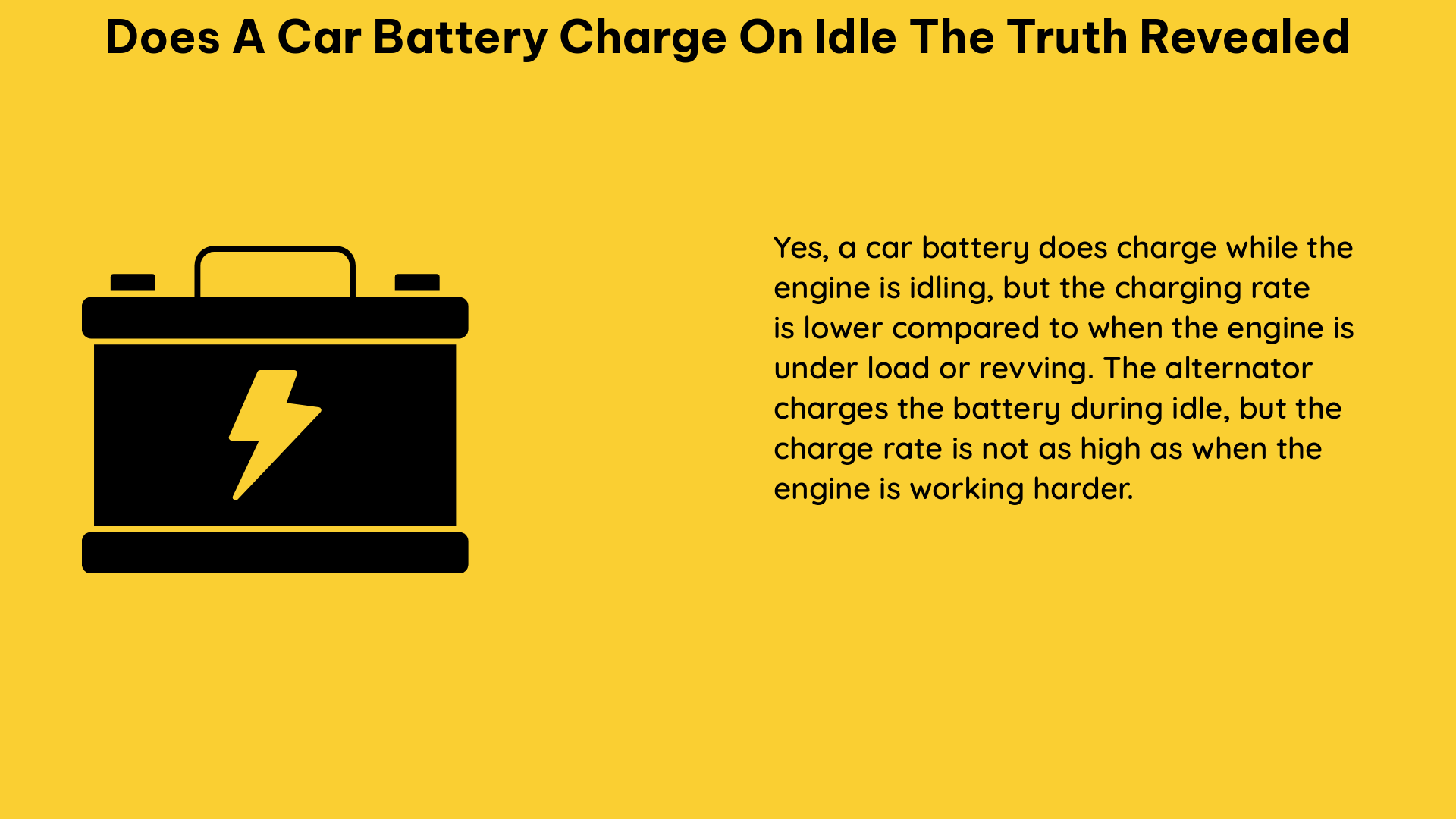When it comes to the question of whether a car battery charges while idling, there has been a lot of debate and confusion among car enthusiasts and experts. However, the truth is that a car battery can indeed charge while the engine is idling, but the charging rate may not be as efficient as when the car is driven at higher speeds.
Understanding the Alternator’s Role in Charging the Battery
The key to understanding this phenomenon lies in the role of the alternator, which is the primary component responsible for charging the car’s battery. The alternator is a generator that converts mechanical energy from the engine into electrical energy, which is then used to power the car’s electrical systems and charge the battery.
When the engine is running, the alternator is spinning, and it generates an alternating current (AC) that is then converted into direct current (DC) by a rectifier. This DC current is then used to charge the battery and power the car’s electrical components.
Factors Affecting the Charging Rate During Idling

While the alternator does continue to charge the battery during idling, the charging rate may not be as high as when the car is driven at higher speeds. This is because the alternator’s output is directly proportional to the engine’s speed. At lower engine speeds, such as during idling, the alternator may not generate as much power as it would at higher speeds.
Additionally, the electrical load on the car’s electrical system can also affect the charging rate. During idling, the car’s electrical components, such as the lights, radio, and climate control system, are still drawing power from the battery, which can reduce the amount of power available for charging.
Measuring the Battery’s Charge Level
To determine whether a car battery is fully charged, you can use a multimeter to measure the voltage. A fully charged car battery should measure between 12.6 and 12.8 volts when the engine is off, and between 13.7 and 14.7 volts when the engine is running.
If the battery voltage is lower than these ranges, it may indicate that the battery is not being charged effectively, either due to a problem with the alternator or other electrical issues in the car.
Factors That Can Affect the Alternator’s Charging Efficiency
There are several factors that can affect the alternator’s ability to charge the battery effectively, even during idling:
- Age and Condition of the Alternator: As an alternator ages, its efficiency can decrease, which can result in a lower charging rate, even during idling.
- Temperature: Extreme temperatures, both hot and cold, can affect the alternator’s performance and reduce its charging efficiency.
- Electrical Load: The more electrical components that are running in the car, the more strain it puts on the alternator, which can reduce its ability to charge the battery effectively.
- Battery Condition: If the car battery is old or damaged, it may not be able to accept a full charge, even if the alternator is functioning properly.
Strategies for Maintaining a Healthy Battery
To ensure that your car’s battery is always charged and in good condition, it’s important to follow these strategies:
- Regularly Check the Battery Voltage: Use a multimeter to check the battery voltage, both when the engine is off and when it’s running. This will help you identify any issues with the battery or the charging system.
- Avoid Excessive Idling: While idling can charge the battery, it’s not the most efficient way to do so. Try to avoid prolonged idling and instead drive the car at higher speeds to ensure the battery is charged more effectively.
- Use a Battery Charger: If your car has been sitting for an extended period, or if the battery is not holding a charge, consider using a battery charger to fully recharge the battery.
- Replace the Battery Regularly: Car batteries typically have a lifespan of 3-5 years, depending on usage and environmental factors. Replace the battery as recommended by the manufacturer to ensure optimal performance.
Conclusion
In summary, the answer to the question “Does a car battery charge on idle?” is yes, but the charging rate may not be as efficient as when the car is driven at higher speeds. The alternator is the key component responsible for charging the battery, and its output is directly related to the engine’s speed. By understanding the factors that can affect the alternator’s charging efficiency and following best practices for battery maintenance, you can ensure that your car’s battery is always in good condition and ready to power your vehicle.
References:
- Do Car Batteries Charge While Idling?
- If a car is idling, does it charge the battery?
- How much can you charge a car battery by idling?
- Does Idling a Car Charge the Battery?
- How Long You Have to Drive to Charge Your Car Battery

The lambdageeks.com Core SME Team is a group of experienced subject matter experts from diverse scientific and technical fields including Physics, Chemistry, Technology,Electronics & Electrical Engineering, Automotive, Mechanical Engineering. Our team collaborates to create high-quality, well-researched articles on a wide range of science and technology topics for the lambdageeks.com website.
All Our Senior SME are having more than 7 Years of experience in the respective fields . They are either Working Industry Professionals or assocaited With different Universities. Refer Our Authors Page to get to know About our Core SMEs.